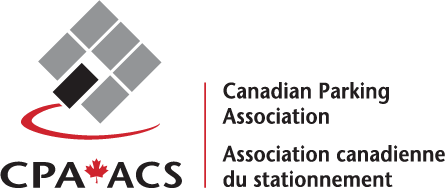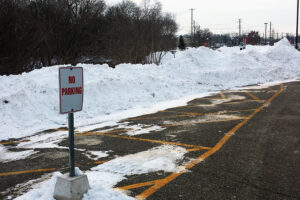Simon Fraser University’s experience implementing a new parking revenue stream.
By David Agosti
Simon Fraser University’s (SFU) main campus is located in Burnaby BC. SFU has over 5,000 parking spaces and EV Chargers has been part of their parking supply since 2012. Starting in 2021 (post-COVID) SFU has been expanding their EV Charging network in order to provide a service to customers, assist governments in their EV Charging goals, and provide an additional revenue source to the University.
Some EV Charging Basics
As the world of EV Charging evolves it is helpful to understand some of the basic terminology:
- Port – the part of the EV Charger that supplies power to the electric vehicle via a cable and charging head. Some EV Chargers have one port (can charge 1 car), and some have two.
- Level 1 Charger – slowest form of charging utilizing a 110V outlet. Normally to use a Level 1 charger the driver needs their own cable and charging head that was supplied with the car.
- Level 2 Charger – a mid-speed form of charging using AC power varying from 7KWH to 19KWH depending on model. Most Level 2 chargers have 2 ports.
- DCFC (Level 3) Charger – the fastest form of charging using DC power varying from 50KWH – 350KWH depending on model. DCFC’s fill an EV batter to approx. 90% charge after which they provide a trickle charge so as not to damage the battery.
- KWH – Kilowatt-Hour – EV Charger speeds as well as EV battery capacity are measured in KWH.
- LCFS – Low Carbon Fuel Standard – in BC (and some US States) a program that aims to reduce the carbon intensity of transportation fuels. Clean fuel…
By Pam Strong, Lake Simcoe Region Conservation Authority
In the Q2 2020 issue of Parker magazine, we highlighted the significant issues that salt is causing to our road and parking lot infrastructure, as well as to our freshwater resources. Many stakeholders, including road managers and environmental agencies, have been working to tackle this issue and apply less salt; however much of this effort has focused on roads. As part of this effort, the Lake Simcoe Region Conservation Authority retained GHD in 2017 to develop the Parking Lot Design Guidelines to Promote Road Salt Reduction. These guidelines were developed with the recognition that parking lots contribute a significant amount of chloride from salt, approximately 20% in the Lake Simcoe watershed, and significantly more in more urbanized areas, such as Toronto and Peel Region. These guidelines provide some tangible options for those involved in parking lot design and maintenance to reduce the amount of salt that is used in these areas, thus protecting parking lot infrastructure and water resources.
The guidelines were developed to demonstrate to those involved in the planning, design, and maintenance of parking lots that they can be designed from the outset in such a way that they require less salt to be applied to maintain an acceptable level of service and safety. Through stakeholder interviews and design charrettes, we identified four design features that can help to reduce the amount of salt needed to maintain safe conditions. Also included with the guidelines are site examples that demonstrate how the features can be used on several different development types. These site types include:
- Large size commercial development (greater than 10 ha)
- Medium size commercial development (5-6 ha)
- Small size commercial development (less than 3 ha)
- Institutional development (public school)
We also developed two…
Hi All,
Like many Universities when COVID originally shut down our city in March 2020, McGill University suspended paid parking since only essential services (electrical and mechanical trades) were on site. The decision to restart parking came at the end of August and it has taken weeks to set up permits, passes etc for paid parking to begin September 27. Montreal is now entering a second wave and again people are being encouraged to work from home. The University is again considering suspending parking fees. Is anyone else suspending parking for a second wave or is it under consideration?
Jo-Ann Sciampacone, McGill University
Our Campus does not receive the revenue from parking tickets our enforcement staff issue. We contract with a 3rd party to provide ticket administration and collection. How common is this arrangement in the campus world?
Do you contract out your ticket administration?
Do you receive all or a portion of the ticket revenue?
Do you have a 3rd party doing your ticket collection or how do you manage outstanding tickets (or is this an issue)?
Pauline Tessier, University of Regina
E-mail: pauline.tessier@uregina.ca





